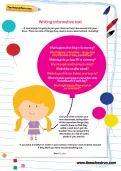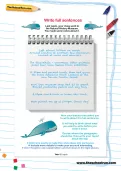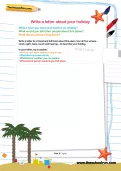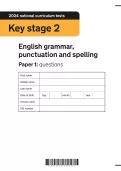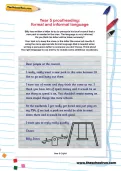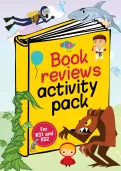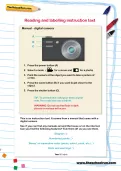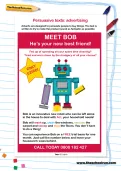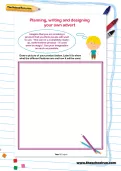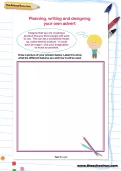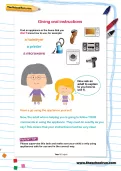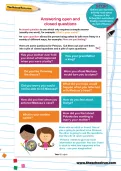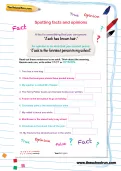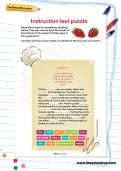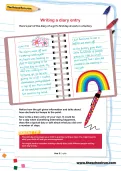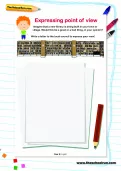Help your child prepare for the Year 6 English SATs, taken at the end of Key Stage 2, with some revision and at-home practice. These KS2 SATs past papers from 2024 are the official past papers from the Department for Education, used in schools.
or
Register to add to your saved resources
Billy has written a letter to try to persuade his local council that a new park is needed in the area. The language is very informal. Do you think his letter will be taken seriously? Your task is to keep the ideas in the letter the same but rewrite it using the more appropriate formal language that is needed when writing a persuasive letter to someone you don’t know.
or
Register to add to your saved resources
Already a subscriber? to view this content.
Help your child explore books and language with TheSchoolRun's Book reviews activity pack, a huge collection of reading comprehension and creative writing resources for Year 1 to Year 6.
or
Register to add to your saved resources
Already a subscriber? to view this content.
A formal letter and an informal letter has been cut up into pieces. Can you cut out the pieces and piece them back into two letters?
or
Register to add to your saved resources
Already a subscriber? to view this content.
This is an instruction text. It comes from a manual that came with a digital camera. See if you can find any manuals around the house or on the internet. Can you find the following features? Tick them off as you see them.
or
Register to add to your saved resources
Already a subscriber? to view this content.
A Year 5 (KS2) persuasive text example and activity, created by an experienced teacher and based on the use of persuasive texts in advertising.
or
Register to add to your saved resources
Already a subscriber? to view this content.
Imagine that you are creating a product that you think people will want to use. This can be a completely made-up, make-believe product – it could even be magic! Use your imagination as much as possible. Draw a picture of your product below. Label it to show what the different features are and how it will be used.
or
Register to add to your saved resources
Already a subscriber? to view this content.
Find an appliance in the home that you don’t know how to use, for example a hairdryer, printer or microwave. Have a go using the appliance yourself. Now, the adult who is helping you is going to follow YOUR commands in using the appliance. They must do exactly as you say! This means that your instructions must be very clear.
or
Register to add to your saved resources
Already a subscriber? to view this content.
A closed question is one which only requires a simple answer (usually one word), for example: What is your name? An open question allows the person being asked to talk more freely in a variety of different ways, for example: How are you feeling? Here are some questions for Perseus. Cut them out and sort them into a pile of closed questions and a pile of open questions.
or
Register to add to your saved resources
Already a subscriber? to view this content.
Have your child pretend they're helping out a new boy or girl who's just arrived at their school by explaining all of the important things they'd need to know, from homework to PE.
or
Register to add to your saved resources
Use this worksheet to help your child learn to recognise sentences that are facts and sentences that are opinions.
or
Register to add to your saved resources
Convert basic notes about a fun day at the Natural History Museum into full sentences and paragraphs.
or
Register to add to your saved resources
This exercise is a great way to help your child practise descriptive writing. Talk about recent holidays your family has gone on, and what your child remembers from them. Can they write a letter to a friend, telling them about the holiday?
or
Register to add to your saved resources
This instruction text worksheet helps your child understand the correct way to explain a detailed process, and also gives you a recipe for a tasty treat!
or
Register to add to your saved resources
This worksheet shows an example diary entry and then encourages children to write their own, thinking about various features of diary writing.
or
Register to add to your saved resources
Already a subscriber? to view this content.
This worksheet encourages children to listen to a spoken commentary and analyse it.
or
Register to add to your saved resources
Already a subscriber? to view this content.
This worksheet prompts your child to write a letter stating their point of view about a library being built in their town or village.
or
Register to add to your saved resources
Already a subscriber? to view this content.
